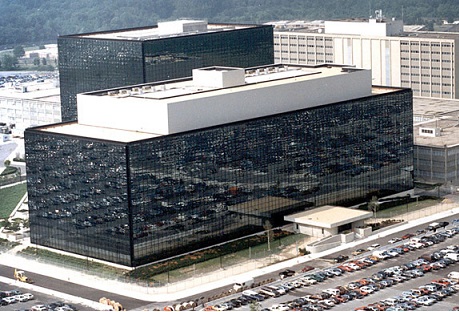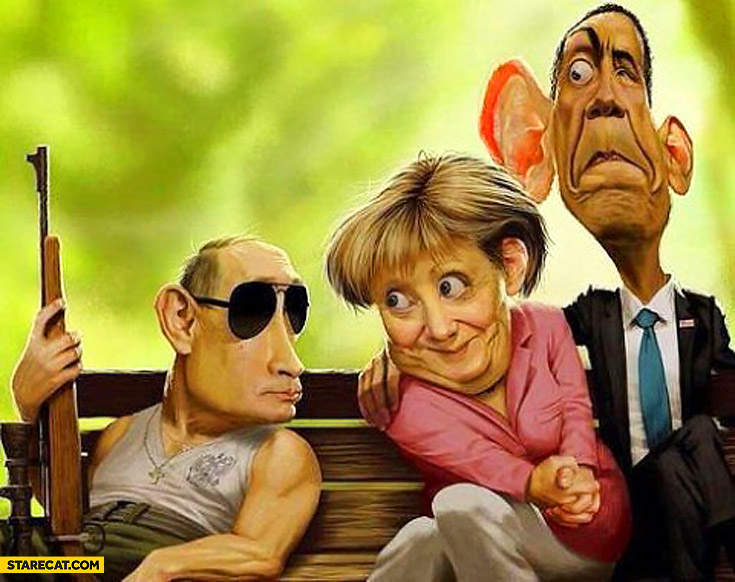 It has now been almost two years since Snowden. It’s time for us to admit this has little to do with privacy. Global surveillance is not global only because it targets people all over the world. Global surveillance is done for and against global interests. Privacy, by contrast, is an individual right. It’s simply the wrong description level. This is not about your internet history or private phone calls, even if the media and Snowden wish it were.
It has now been almost two years since Snowden. It’s time for us to admit this has little to do with privacy. Global surveillance is not global only because it targets people all over the world. Global surveillance is done for and against global interests. Privacy, by contrast, is an individual right. It’s simply the wrong description level. This is not about your internet history or private phone calls, even if the media and Snowden wish it were.
Privacy is rarely seen as a fundamental right. Privacy is relevant insofar as it enables control, harming freedom, or insofar as it causes the violation of a fundamental right. But the capabilities of intelligence agencies to carry out surveillance over their own citizens are far lower than their capability to monitor foreigners. Any control this monitoring might entail will never be at the individual level; governments can’t exert direct control over individual citizens of foreign countries.
.
Framing this as an issue of individual privacy is a strategic move done against the interests of individuals. The media does it to get attention. Snowden does it to get leverage. Governments may do it because they want to join the Global Espionage Club – the Five Eyes – for plausible deniability, and to increase their own surveillance capabilities. The US may allow it because it already decided to bite the bullet on privacy and it doesn’t want to add State/trade secrecy violation to the list.
It is well known that the private communications of the President of the United States are under surveillance by multiple intelligence agencies. That’s how adults play in the Espionage Game, said former director of both the CIA and the NSA. Although the German outrage over the NSA wiretapping their Chancellor’s phone was probably genuine, it is hard to believe anyone with minimal knowledge of intelligence operations – which I would like to think Angela Merkel has – could be surprised by this. At the same time she publicly demonstrated her indignation, Merkel said she wanted a “no-spy rule” for Germany, one of the privileges of the Five Eyes Club. (Note also that asking for a no-spy agreement is not a good strategy for setting one up; it means you are not getting any good intelligence on the other party in the first place.) Other governments might want to make the debate on global surveillance about privacy so they can increase their own control over their citizens. For instance, Brazil and some Arabic countries considered imposing a relative isolation of their internet from the rest of the world. Technically, this would not forbid the NSA from watching these countries’ communications, but it would increase these governments’ surveillance capabilities over their own communications.
In terms of total data collected, Brazil was one of the main targets. In particular, the Canadian Eye in the Five Eyes monitored Brazil’s Ministry of Energy and the NSA monitored Petrobras.  As far as I am aware neither of them holds sensitive private individual information (or terrorists for that matter). On the other hand, Petrobras is one of the world’s biggest oil companies and had recently discovered record-breaking oil fields. It would be hard to infer the specific intentions of spying on Petrobras, but it seems clear that the private internet history of Petrobras employees has little to do with it. In another case in point, the NSA director at the time cited former Chancellor Schröder’s relationship with Putin and his suspicious involvement with the oil pipeline consortium Nord Stream as a legitimate reason for spying on German Chancellors. Regardless of its legitimacy, it does not seem that the Chancellor’s individual privacy is what is at stake here.
As far as I am aware neither of them holds sensitive private individual information (or terrorists for that matter). On the other hand, Petrobras is one of the world’s biggest oil companies and had recently discovered record-breaking oil fields. It would be hard to infer the specific intentions of spying on Petrobras, but it seems clear that the private internet history of Petrobras employees has little to do with it. In another case in point, the NSA director at the time cited former Chancellor Schröder’s relationship with Putin and his suspicious involvement with the oil pipeline consortium Nord Stream as a legitimate reason for spying on German Chancellors. Regardless of its legitimacy, it does not seem that the Chancellor’s individual privacy is what is at stake here.
Snowden was more than willing to admit that the NSA was after Petrobras’ trade secrets when applying for asylum in Brazil. On most occasions, however, he and many media outlets have persistently insisted this is about your privacy. Greenwald stated:
“The objective of the NSA and the U.S. government is nothing less than destroying all remnants of privacy. They want to make sure that every single time human beings interact with one another, things that we say to one another, things we do with one another, places we go, the behavior in which we engage, which they know about it.”
Two years have passed since the initial revelations and Snowden and Greenwald are still slowly leaking documents. If they wanted a revision of NSA practices – a goal in which they have failed – they could have attempted this with a single release of a small percentage of the data. However, if their goal was public attention, they have certainly succeeded. Data collection regulations have been relaxed instead of tightened. The lesson NSA director at the time bulk collection was introduced took out of this was, in his own words:
“Shame on us not for what we may or may not have done, but shame on us for our inability to keep what we may or may not have done a secret.”
Meanwhile, the country where these surveillance program s were more unrestrictedly and extensively conducted than any other – the UK – has recently officially concluded that “all the surveillance activities of the intelligence agencies are lawful and proportionate.” Furthermore, the fact that individuals now think NSA is watching them creates a form of indirect control that wasn’t there before. The fact you know that I know private information about you that I never intended to use or share – all else being equal – entails further loss of privacy. Unfortunately, it seems nothing else has changed regarding privacy laws. Political turmoil, yes; real change, does not seem like it.
s were more unrestrictedly and extensively conducted than any other – the UK – has recently officially concluded that “all the surveillance activities of the intelligence agencies are lawful and proportionate.” Furthermore, the fact that individuals now think NSA is watching them creates a form of indirect control that wasn’t there before. The fact you know that I know private information about you that I never intended to use or share – all else being equal – entails further loss of privacy. Unfortunately, it seems nothing else has changed regarding privacy laws. Political turmoil, yes; real change, does not seem like it.
I will avoid digressing too much into Snowden and Greenwald’s personal motives, but let’s say they seemed to be twisted, at best. Their personal histories include repeatedly legally representing neo-Nazis, bashing elderly dependence on Social Security, extreme anti-immigration views and so on. Not to mention that the funding for Snowden came from Assange, someone with questionable ties to the Russian government. Whatever narrative best explains their personal agenda has to account for all those facts, not just the leaking itself. Let’s just establish they are more complicated human beings than recent events alone would indicate; as far as possible narratives go, Wilentz’s is a pretty informative one. Although Snowden and Greenwald consistently claimed that the NSA could access American’s private information almost instantly if they wished, they have failed to substantiate that claim. They were willing to disclose documents about legal operations to monitor Iranian emails on its nuclear developments and to track the Taliban in Pakistan. Although those documents compromised US national security, they got little attention from the media. On the other hand, when it came to disclosing documents describing the capability of reading personal emails at will, they simply replied they had no intention of releasing them. So much for transparency.
.
Individual privacy is not what we lose in exchange for increased protection against terrorism. The cost of protection is allowing global control; it’s allowing the Five Eyes to know things like trade secrets of major oil companies. We lose freedom directly on a global scale. Snowden, Greenwald and governments all have ulterior motives to frame global surveillance as an individual privacy issue. In a couple of months, it will have been two years since Snowden fled from Hawaii to Hong Kong to meet Greenwald. We were frightened by their revelations; we bought the individual privacy story; it got into our imaginations; we started covering our webcams with little stickers. Maybe it was exciting being the target of a global espionage conspiracy. But it’s time to let go of it. Every time we as individuals buy this narrative, we do ourselves a disservice.


Interesting approach, Joao! While I probably agree with you that the objective of surveillance might be primarily an economic one, meaning that intelligence agencies are more interested in spying on businesses (this in itself carries interesting ethical issues), individuals’ privacy is also at stake. Here is just one example of documents leaked that are directly about individuals, but there are plenty: http://www.theguardian.com/world/2014/feb/27/gchq-nsa-webcam-images-internet-yahoo. You say that documents describing the capability of reading personal emails at will were not released, but the training manual for X-Keyscore was essentially about that: http://www.theguardian.com/world/2013/jul/31/nsa-top-secret-program-online-data. While you are right that the recent UK report did affirm that the suveillance was “lawful and proportionate,” it also concluded that the surveillance laws need total overhaul. Furthermore, there are people who have questioned the committee—after all, it is a committee from Parliament. Final point: Even if intelligence agencies did not target individuals, by weakening encryption all over the Internet in the way that they do, they make individuals more vulnerable to things like identity theft.
Thanks for the comments Carissa.
The X-Keystroke documents revealed in no way show the mentioned capability of instantaneously accessing anyone’s email or private communications. The document explicitly talks about targets, potential terrorists, and even then the search is done by keywords not users (much like Echelon, that people already knew has been going on for quite some time) Moreover, there’s no indication that people could access these information without approval. Frankly, although we will never have any way to know, I don’t think Snowden ever had the technical knowledge to understand the context those documents where in. He was nothing more than a low level system administrator, not an intelligence analyst. All interviews I saw with him, including Citizenfour, gives me indirect support to that belief. Either by the public reinforcing it or by his own will, out of the many misinterpretations a layman could have produced, the individual privacy breach one was the one he ended up with. They said they had documents revealing the much advertised capability of simply clicking into any user, and without authorization, monitor him in real-time; so far we are still waiting for those documents.
Saying the UK is calling for a complete overhaul is a cheap move by the parliament. They are going to redo the laws so that everything they were doing before Snowden becomes explicitly legal. This is not an advancement.
Thanks for your response, Joao.
Analysts could search by keywords, but also by “name, telephone number, IP address” and email addresses. Analysts could use XKeystroke “by filling in a simple on-screen form giving only a broad justification for the search. The request is not reviewed by a court or any NSA personnel before it is processed.”
I agree that the report and its conclusions will probably come to nothing of significance. But the fact that they say that an overhail is needed just shows that things are not as rosy as they portray them to be, that current and past practices and what is legal and reasonable do not fit in together all that well.
In principle, NSA could simply put an analyst to hack and access all your files. This not only a discussion about what they could or couldn’t do in the limit scenario, but about their intentions. XKeystroke was not a collection program; it was a tool to analyse data already collected, or to better focus the collection. In that regard, the intention was exactly to filter the data so they wouldn’t end up with data from normal individuals – but Greenwald decided to ignore that framing of the program. Moreover, Snowden insisted on claiming they could do this for most American citizens, which would violate US law. But this in particular was never confirmed, XKeystroke dealt with non-American targets. If there were instances where this was not the case, it was by human error. Would be hard to defend their intentions and objectives were to access private data of normal citizens. That would be a huge waste of resources given how wide the search would have to be, resources that would be better spent targeting terrorists, Angela Merkel, and oil companies. NSA auditing found few instances of this not being the case. I think the problem is not with what they could do illegally with bad intentions, the problem is what they officially addmit they were doing: “NSA’s activities are focused and specifically deployed against – and only against – legitimate foreign intelligence targets in response to requirements that our leaders need for information necessary to protect our nation and its interests.”
They said the overhaul was needed, yes. But they also say the overhaul is in order to pass laws specifically and directly allowing global surveillance, instead of indirectly like before. That’s why I think merely saying they asked for an overhaul is misleading (and they induced that wrong interpretation, of course).
Five Eyes has been sort of big news here in New Zealand on the back of the Snowden/Greenwald thing. It’s been big news because the media have made a lot of fuss about it, but it’s only been sort of big news because most of New Zealand has found it less than riveting. I think there’s a feeling of “so spies spy, huh?” among people. The interesting thing to me is that the sort of people who usually argue for increased state powers are exactly those who freak out when spies actually do some spying, while those who have a prior that the state is already too big tend to be completely relaxed about it.
I think the beliefs that make that plausible is that state skeptics begin from the premise that the state is crap at most things, so it’s probably crap at this, too, while those who think that government is kind of like superman get freaked out if superman does something imperfect, like jaywalking, or looking up a file that he probably shouldn’t. Plus I think there’s an IR component – state enthusiasts often have idealistic perspectives on the international order – the soppy end of liberalism, IPE, big happy family stuff, etc – in which spying is really letting your friends down. State skeptics think that the international order is anarchy, and that you’re a fool if you’re not spying while denying spying and trying to get rid of the other guy’s spying stuff.
Snowwald, plus Assange and an entertaining but completely self-interested German internet millionaire called Kim Dotcom had a go at making this stuff a central issue in New Zealand’s general election last year. It backfired spectacularly and increased the incumbent (centrist) Government’s majority. It turned out that voters were more affronted at the naked attempt by non-New Zealanders to influence the outcome of a general election than they were that spies spy, and occasionally get stuff wrong. [Amusingly, it led to a blamestorm on the political left: having majored at university with BAs in Righteous Indignation most of our current crop of leftists politicians instinctively blamed everyone but themselves (including voters, naturally) for their failure. The one person who did seem able to muster something along the lines of “I screwed up and I’m sorry” was Kim Dotcom. But then he didn’t do a BA.]
Thank you for the comment Dave.
Snowden was a strong advocate of NSA surveillance in the past, saying that whoever revealed classified material should be shot. He fits your state-supporter-turned-rogue profile pretty accurately. I have watched the NZ Snowwald/Assange/Dotcom event. When Snowden shows up on the screen, the audience goes crazy as if he were some sort of teen-pop star. I think this is quite revealing.
Thanks for the reply (and the link to the Wilentz article – which was very interesting). These sorts of prima facie conflicted thoughts on the state are fairly common, I think. My friend Adrian who knows a fair bit about climate negotiations pointed out to me that the basic argument of a lot of climate activists runs something like: “My Government is has a morally inadequate position on climate change.” (Either because they’re incompetent, morally reckless regarding future generations, or because they are in hock to dark and mysterious fossil fuel lobbies – all of which would seem to disqualify them as go-to-guys in terms of problem-solving.) But then, soon after, the same activists argue: “What we need is more government!” (I get that it’s not necessarily incompatible to believe those things. But it doesn’t strike me as an obvious set of beliefs to hold, either.)
It’s indeed really easy to accept that narrative without a really hard look.
I thought Snowden was the modern hero. Seeing his comments on: http://www.theguardian.com/world/2015/mar/12/intelligence-security-committee-report-key-findings, and many other facts presented, just made me sick.
If at least the consequences of his actions were indeed positive I wouldn’t be as bother as I am. The problem is that not only he did not helped he just gave food for a ludicrous mind as Putin to think we still in the cold war. I would dare to say that that might have affected some of his actions towards his international “politics”.
And I really agree the problem is not about the individual privacy. Unless maybe you have some sensitive information or have a huge net worth (top 0,001% in wealth).
Comments are closed.